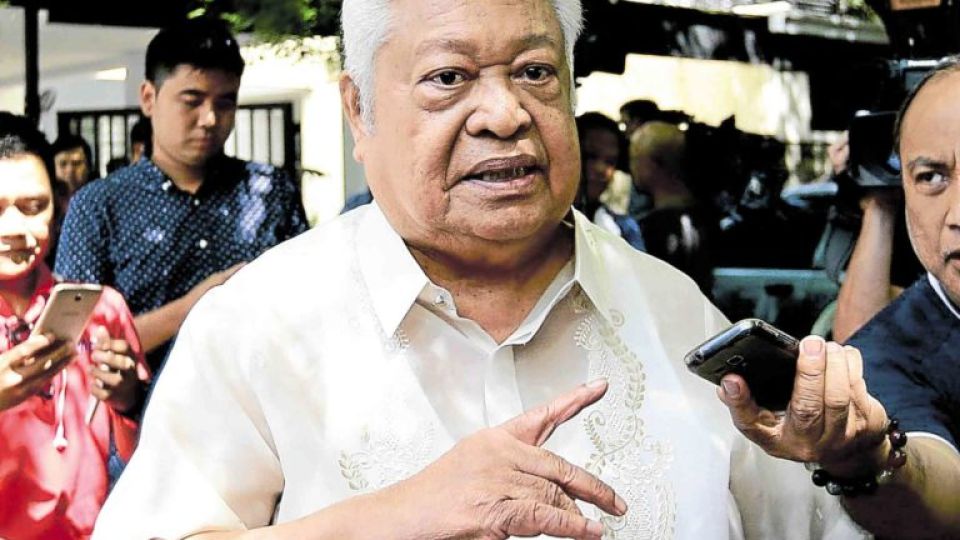July 6, 2022
MANILA, Philippines — President Ferdinand “Bongbong” Marcos Jr.’ commitment to respecting human rights will be tested with the bill that seeks to protect human rights defenders (HRDs), a veteran lawmaker said.
According to Albay Rep. Edcel Lagman, House Bill No. 77 or the Human Rights Defenders Protection Act seeks to place more safety measures for workers whom he said are “surrogate defenders due to the government’s default in its primary obligation” to defend people’s rights.
Lagman said that this is because an emergence of HRDs is an indication that the government is failing to protect human rights.
“The avowal of President Ferdinand Marcos Jr. to fully respect human rights will be put to the test with the refiling […] of the Human Rights Defenders Protection Act as House Bill No. 77,” Lagman said in a statement on Monday.
“(The) emergence of human rights defenders (HRDs) is both an indictment and symptom of the failure and neglect of the government to fully protect, promote, and fulfill human rights,” he added.
It was unclear when Lagman filed the bill, but similar measures aimed at protecting HRDs have been filed in the 17th and 18th Congress, but the lawmaker said these were “not acted upon by the Senate due to time limitations”.
Last January 17, the House of Representatives passed on third reading an identical bill — House Bill No. 10576 or the Human Rights Defenders Protection Act which received 200 affirmative votes and zero negative votes and no abstentions.
House Bill No. 10576 also featured Lagman as the principal author.
If enacted, the measure filed before the 19th Congress seeks to protect HRDs from harassment as they will be allowed to promote human rights and fundamental freedoms while forming groups and organizations and holding peaceful assemblies.
HRDs’ privacy would also be protected, and they will also be allowed to solicit, receive funding, and utilize resources. They would not be hindered too from linking up with international and regional human rights bodies.
Government offices meanwhile are tasked to respect the work being done by HRDs and to prevent intimidation and unfounded labeling against the workers.
The bill also seeks to create a Human Rights Defenders Protection Committee whose members will be assigned by the Commission on Human Rights. Its main function, Lagman said, are the following:
.Protect HRDs from intimidation and reprisals
.Ensure accountability for acts of intimidation and reprisal
.Facilitate and promote inter-agency and inter-department coordination to prevent, protect from, investigate, and .ensure accountability for acts of intimidation or reprisal
.Investigate all forms of violations of human rights and fundamental freedoms of human rights defenders
.Publicly acknowledge and promote the legitimate and important role, activities and work of human rights defenders
.Consult regularly and work closely with human rights defenders in the implementation of the Act.
Marcos has faced criticism from human rights groups particularly due to the accusations of rights violations leveled against his father, namesake and late former president Ferdinand Marcos Sr.
During the older Marcos’ two-decade regime, several rights violations were recorded — with international organization Amnesty International saying that 107,240 are considered primary victims of human rights violations.
Amnesty International said at least 70,000 people were arrested — most of which were abducted arbitrarily or without arrest orders. Another 34,000 were tortured while 3,240 were killed.
In a 2016 interview, the younger Marcos who was then gunning for the vice presidential post acknowledged that rights abuses happened during the term of his father, but noted that it is a problem shared by several administrations which should be addressed.
Before he took his oath of office, the Chief Executive has made several pronouncements assuring the public that he would respect human rights — including in the controversial war against illegal drugs initiated by his predecessor, former president Rodrigo Duterte.
Last June 10, Swedish Ambassador Annika Thunborg said that Marcos told her that he will continue the drug war but “within the framework of the law and with respect for human rights”.
The drug war has been a much-criticized policy of the past administration, due to the spate of killings during police operations. Latest numbers say that 6,252 drug suspects died in legitimate anti-narcotic stings, but rights groups and opposition personalities say the death toll could be between 11,000 to 30,000.


